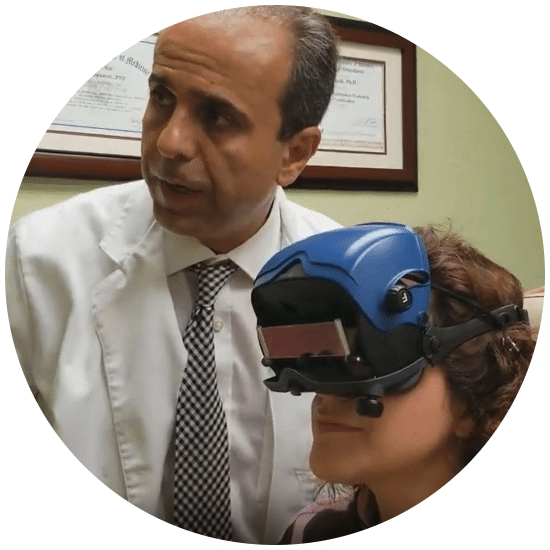Balance Disorders
An estimated 90 million Americans will experience dizziness at least once in their lifetime. The causes of peripheral and central vestibular disorders includes the following: age-related multisensory deficits, strokes and vascular insufficiencies, cerebellar degeneration, chemical and drug toxicities, benign paroxysmal positional vertigo, uncompensated Meniere’s disease, vestibular neuritis, labyrinthitis, and head trauma. Balance disorders are significant risk factors for falls in individuals 65 years and older.
At Labyrinth Audiology, we offer diagnostic balance and vestibular testing to identify the cause of your dizziness, so we can help you find the right solution.

Vestibular Testing
Labyrinth Audiology offers the latest in diagnostic vestibular testing. The purpose is to determine if the inner ear balance organs are functioning properly. We offer the following testing for balance disorders:
- Electrocochleography (EcochG): Tests for Meniere’s disease.
- Vestibular Evoked Myogenic Potential (VEMP): Assists our specialists in determining if there is a dysfunction of the saccule or inferior vestibular nerve.
- Videonystagmography Testing (VNG): Assists our specialists in determining if the patient’s dizziness is caused by inner ear dysfunction, BPPV, or central pathology.
These tests will help our audiologists determine if a vestibular disorder is present and what the best treatment plan is.
Treating Vertigo and
Balance Concerns
Vestibular rehabilitation therapy (VRT) has been highly effective for most individuals with disorders of the vestibular or central balance system. In many studies, customized VRT programs were significantly more effective than generic exercises in resolving symptoms.
The basis for the success of VRT is the use of existing neural mechanisms in the brain for adaptation, plasticity, and compensation. The extent of vestibular compensation and adaptation is closely related to the direction, duration, frequency, magnitude, and nature of the retraining stimulus. Specifically designed VRT exercise protocols take advantage of this plasticity of the brain to increase sensitivity and restore symmetry, which results in an improvement in vestibule-ocular control, an increase in the gain of the vestibulo-ocular reflex (VOR), better postural strategies, and increased levels of motor control for movement.
Other factors that may affect the degree of individual compensation that can be achieved include overall physical status, the functional status of remaining sensory systems, integrity of central brain mechanisms, age, and higher sensory functions such as memory, motor coordination, and cognitive ability.
If you are experiencing symptoms of dizziness or vertigo, contact our office to schedule an appointment.
